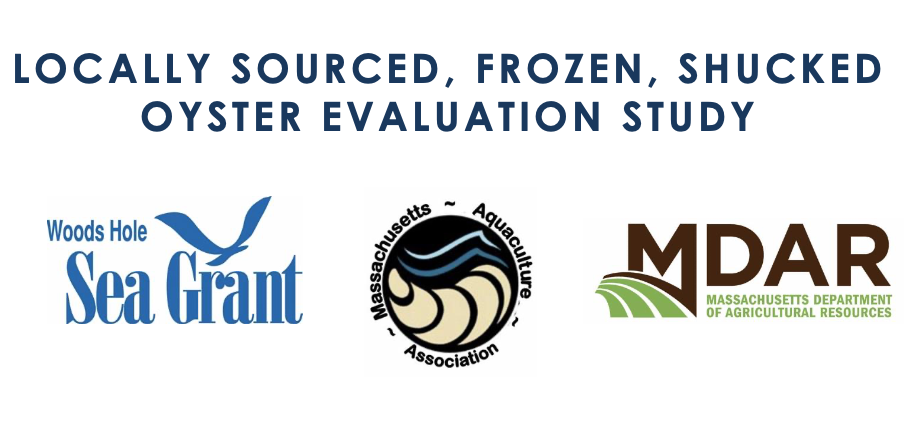RAPID RESPONSE: Assisting Shellfish Growers Impacted by COVID-19
Making In-roads Toward a Shucked Oyster Market in Massachusetts
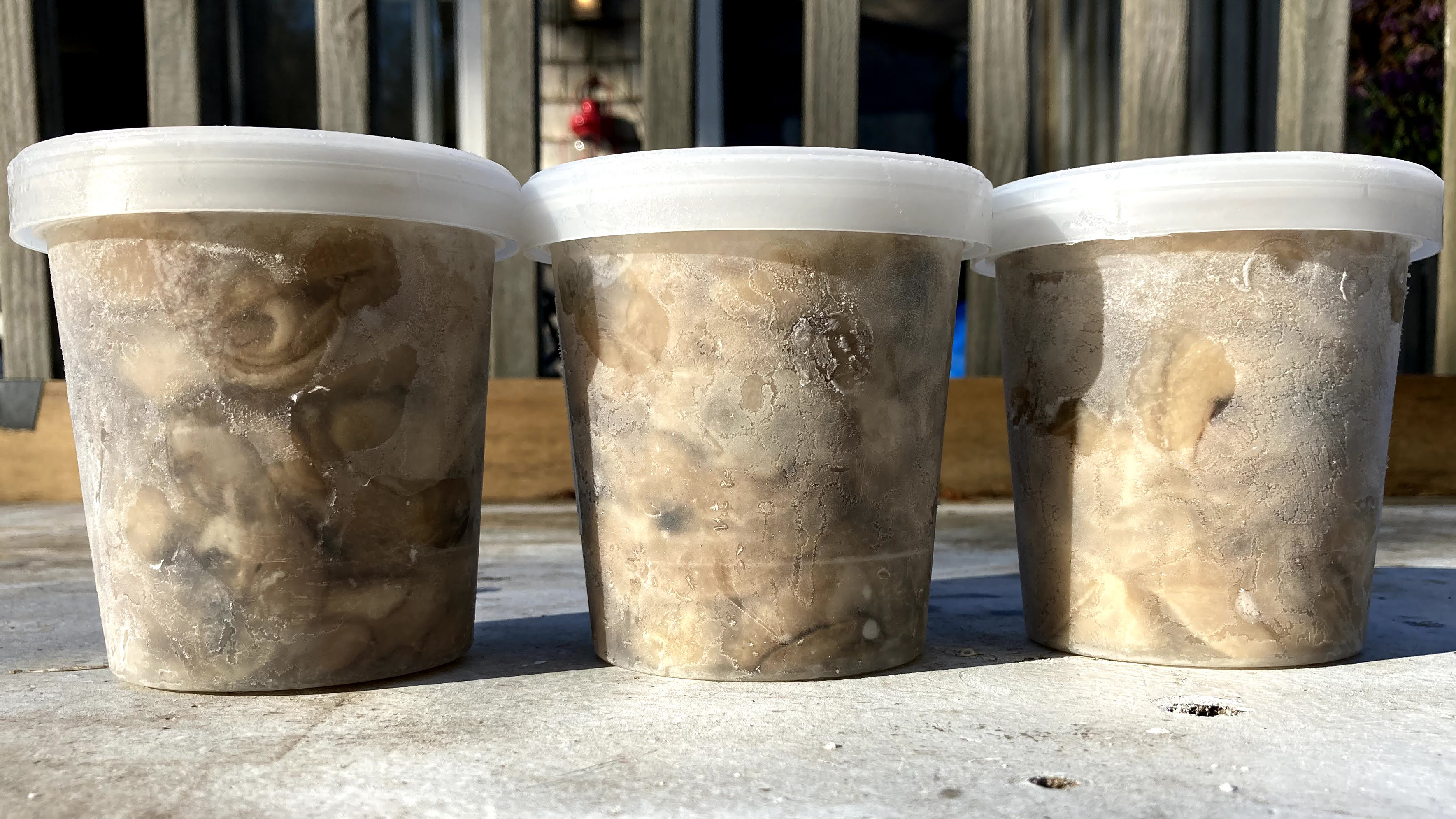
Overview
With the arrival of COVID-19 and the social distancing measures to mitigate its spread including the closure of restaurants, sales of oysters have plummeted. With little access to their traditional markets, shellfish aquaculture businesses and the related businesses that support their operations have been hit hard. In Massachusetts, unharvested oysters are taking up space on shellfish farms and growing bigger than consumers prefer in the $25 million half-shell market.
COVID-19 Rapid Response
In August 2020, Woods Hole Sea Grant (WHSG) and its extension partners at Cape Cod Cooperative Extension (CCCE) received $100,000 in “Rapid Response” funds from the National Sea Grant Office to respond to the dire needs of the shellfish growers community and others impacted by COVID closures. Specifically the WHSG/CCCE team proposed to find ways to move oysters from aquaculture lease areas and into active markets, at once providing growers with income, freeing space on aquaculture leases for the next year’s crop, and providing high quality protein to consumers.
The COVID-19 Rapid Response grant enables the WHSG/CCCE team to:
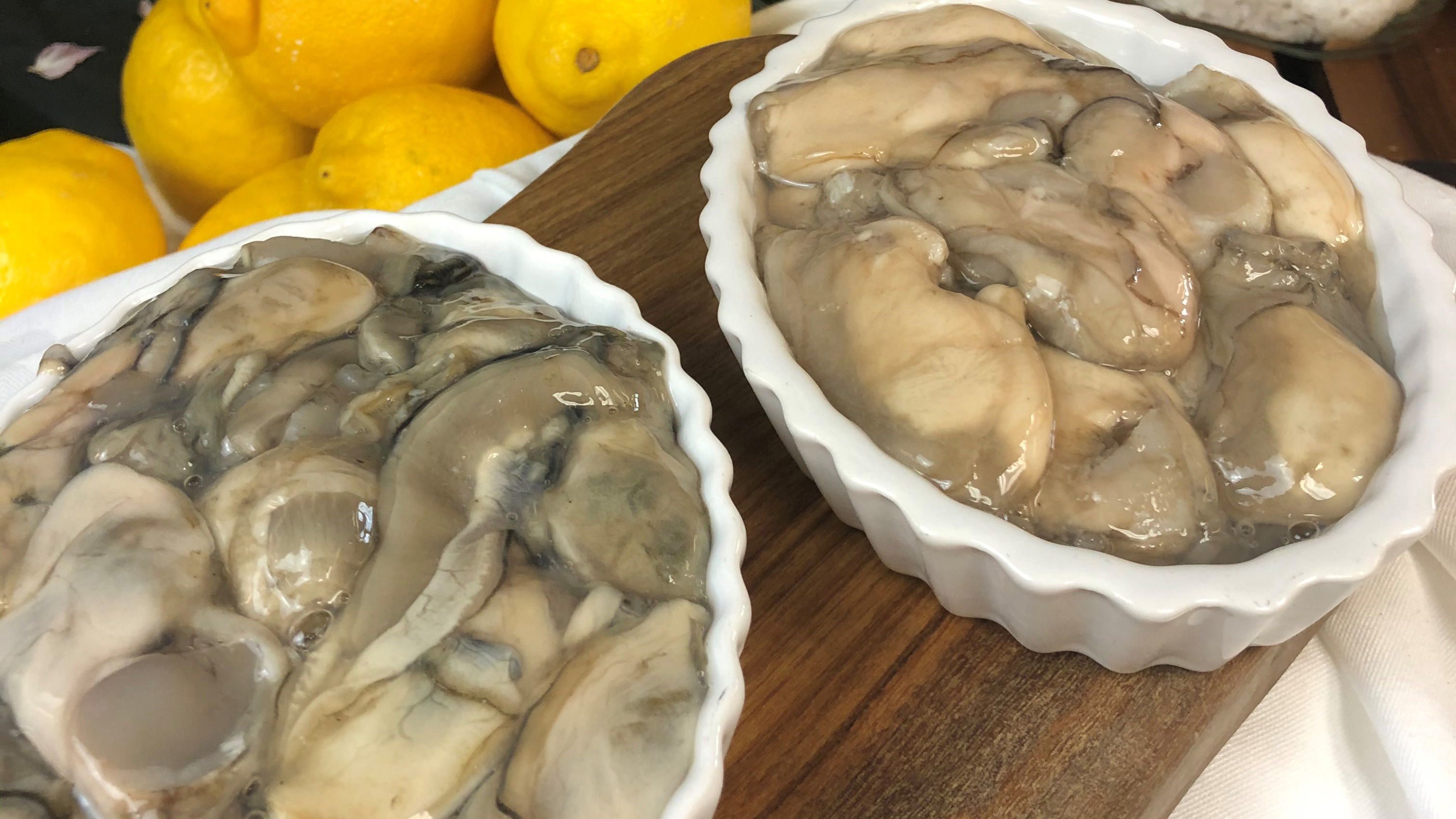
- Address the immediate needs of growers and the public by purchasing large oysters from Massachusetts oyster growers, working with processors to have them shucked, and providing the oysters to food banks in the region in the form of pint-sized containers of shucked oysters and value-added food products, such as oyster stuffing.
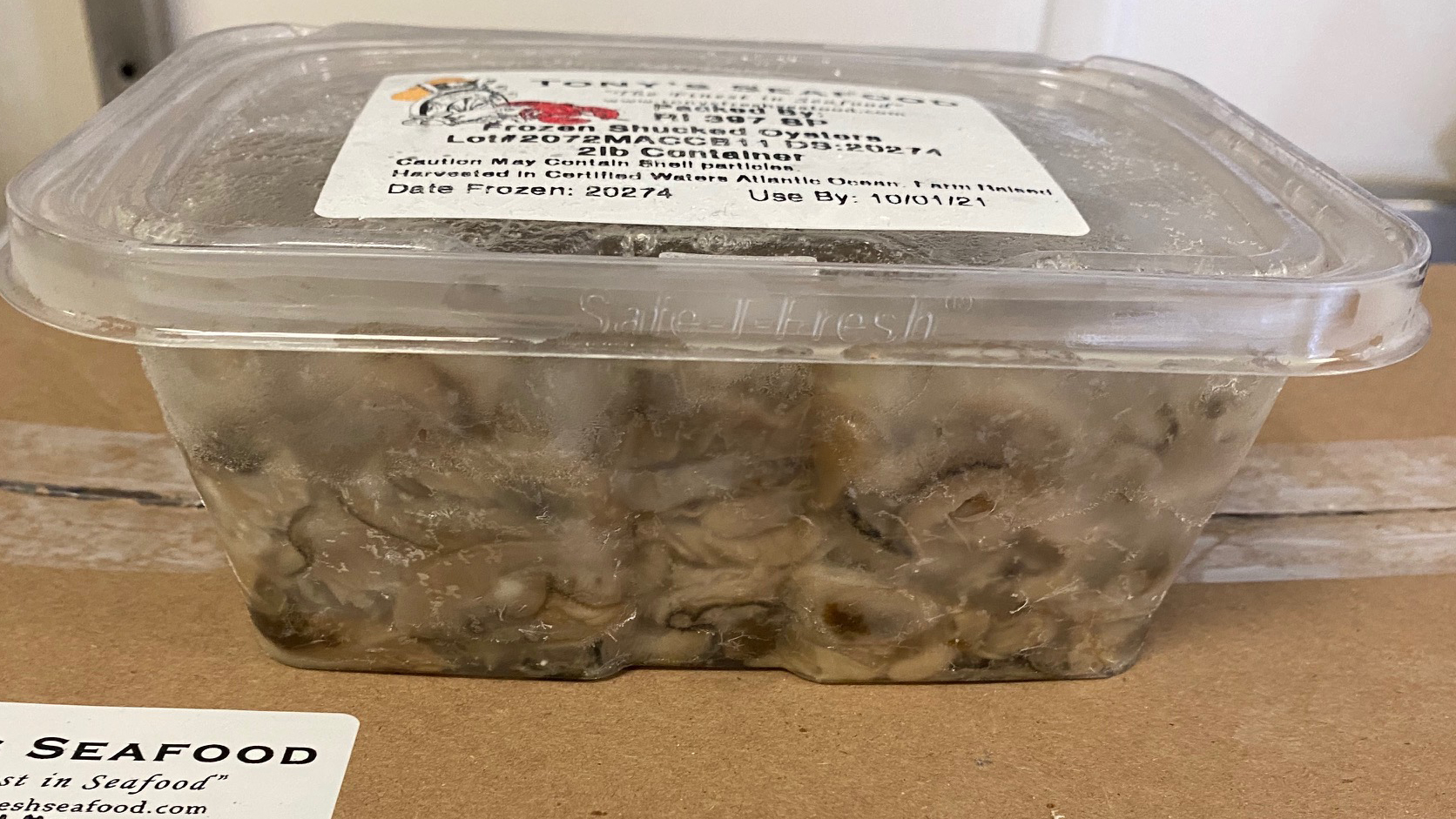
- Make strides on the long-term goal of establishing a shucked oyster market in Massachusetts by giving processors and seafood markets experience with shucked oysters and exploring logistics, production costs, and retail pricing of value-added products.
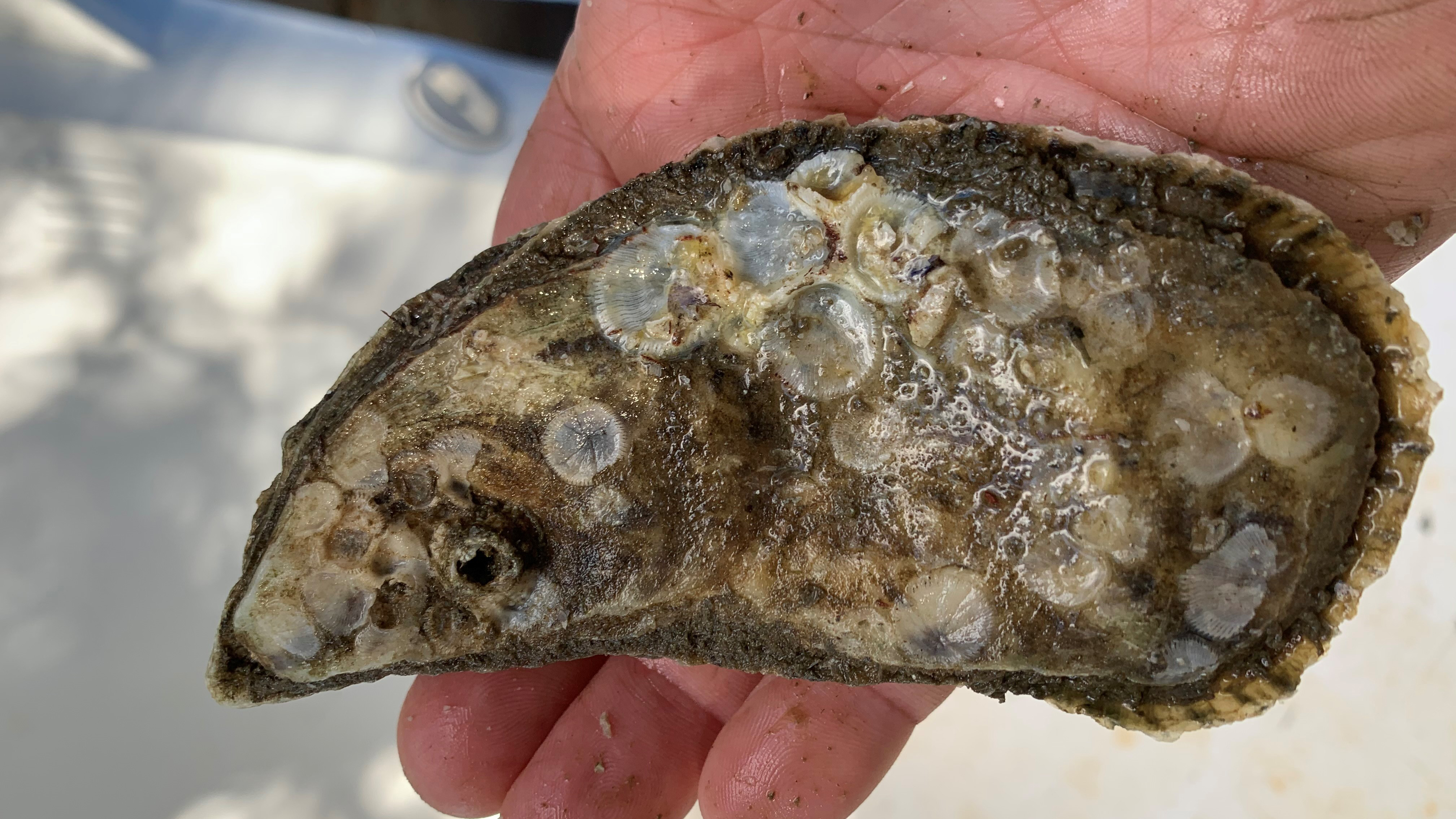
- Provide the means for Cape Cod towns to assist commercial and recreational shellfish farmers.
FOCUS: Creating a shucked oyster market
The effort to move oysters from aquaculture lease areas builds on a project the WHSG/CCCE team began in 2017, investigating the potential for a local shucked oyster market in Massachusetts. Their market research indicated that, while shucked oysters represent roughly 40 percent of the domestic oyster volume, Massachusetts growers were largely shut out of it. They further found that none of the shucking businesses in Massachusetts currently shucked oysters, focusing instead on soft shell clams, quahogs, and surf clams. Through their work on the project, the team identified potential oyster shuckers/processors and provided chefs with local shucked oysters to compare to oysters from outside Massachusetts and provide feedback. Through this work, the team can build on several key pieces of a puzzle to ultimately establish a shucked oyster market in Massachusetts.
Results to-date
Growers we've purchased oysters from
Oysters purchased from Mass. growers
Processors involved in shucking oysters
Pounds of oysters donated to food banks
FOCUS: Support for Town Recreational Shellfisheries
As part of the COVID-19 Related Rapid Response Funding program, WHSG/CCCE sponsored a program for towns within Barnstable County aimed at their municipal propagation resources. It was important and appropriate to focus some of the funding on municipal propagation programs because many towns are experiencing reduced volunteer labor and budget cuts for maintaining shellfish resources. In addition, many towns report that, perhaps due to the economic and social pressures resulting from COVID, more people are fishing for oysters recreationally this year, starting in early spring and through late fall.
This portion of the Rapid Response program provided $19,995 for five projects in four towns across Cape Cod. The towns provided matching funds for the grant.
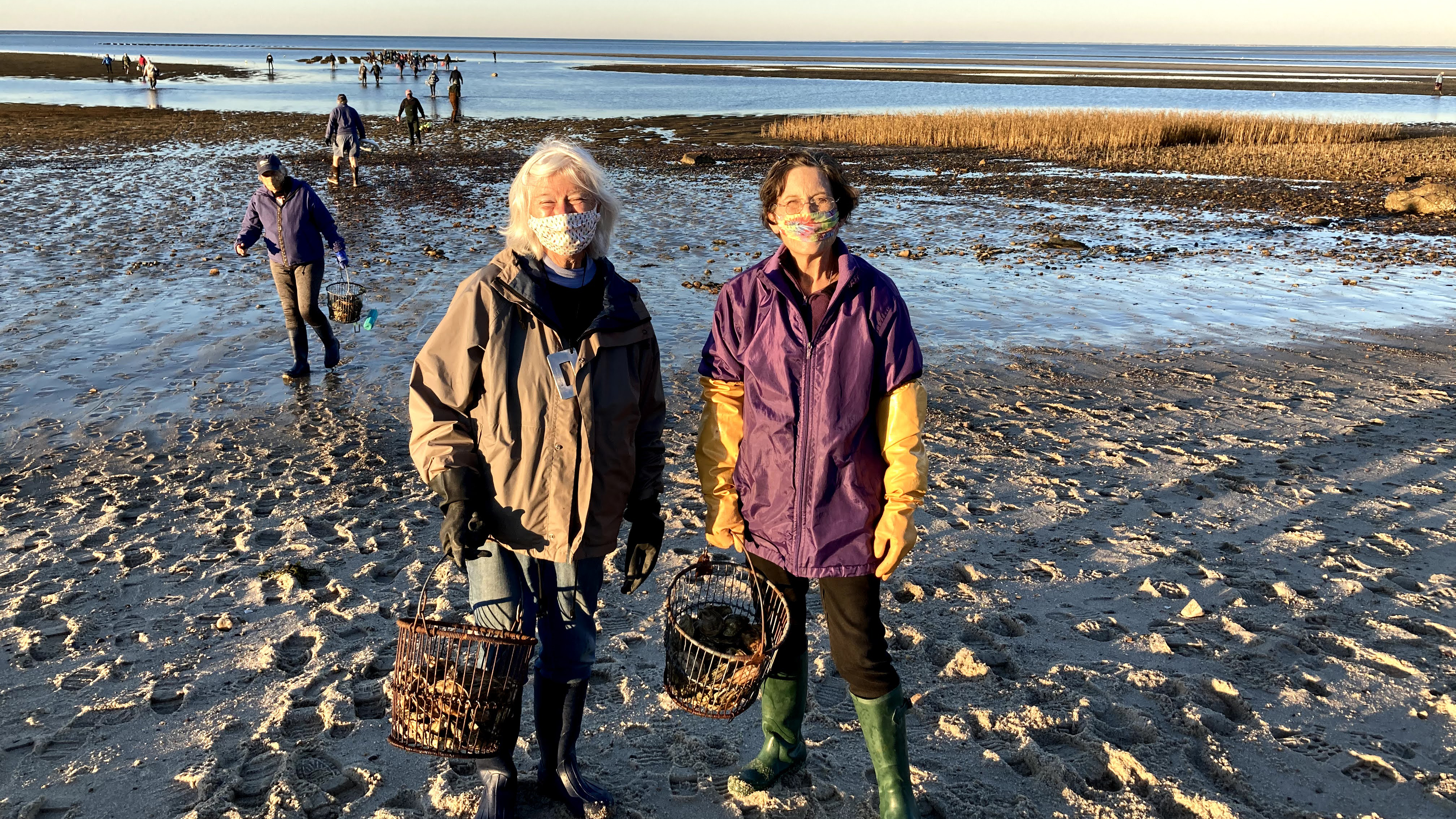
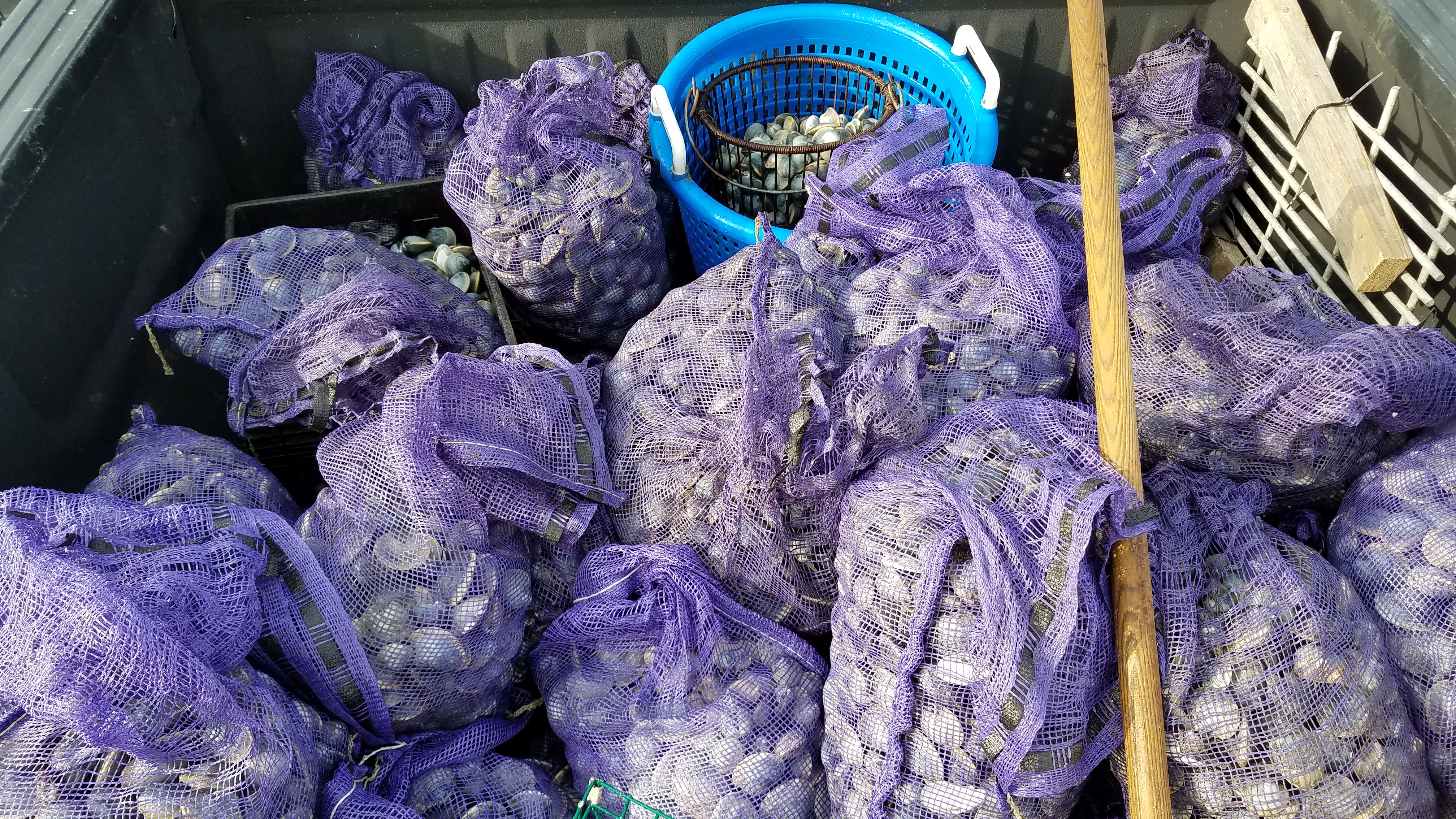
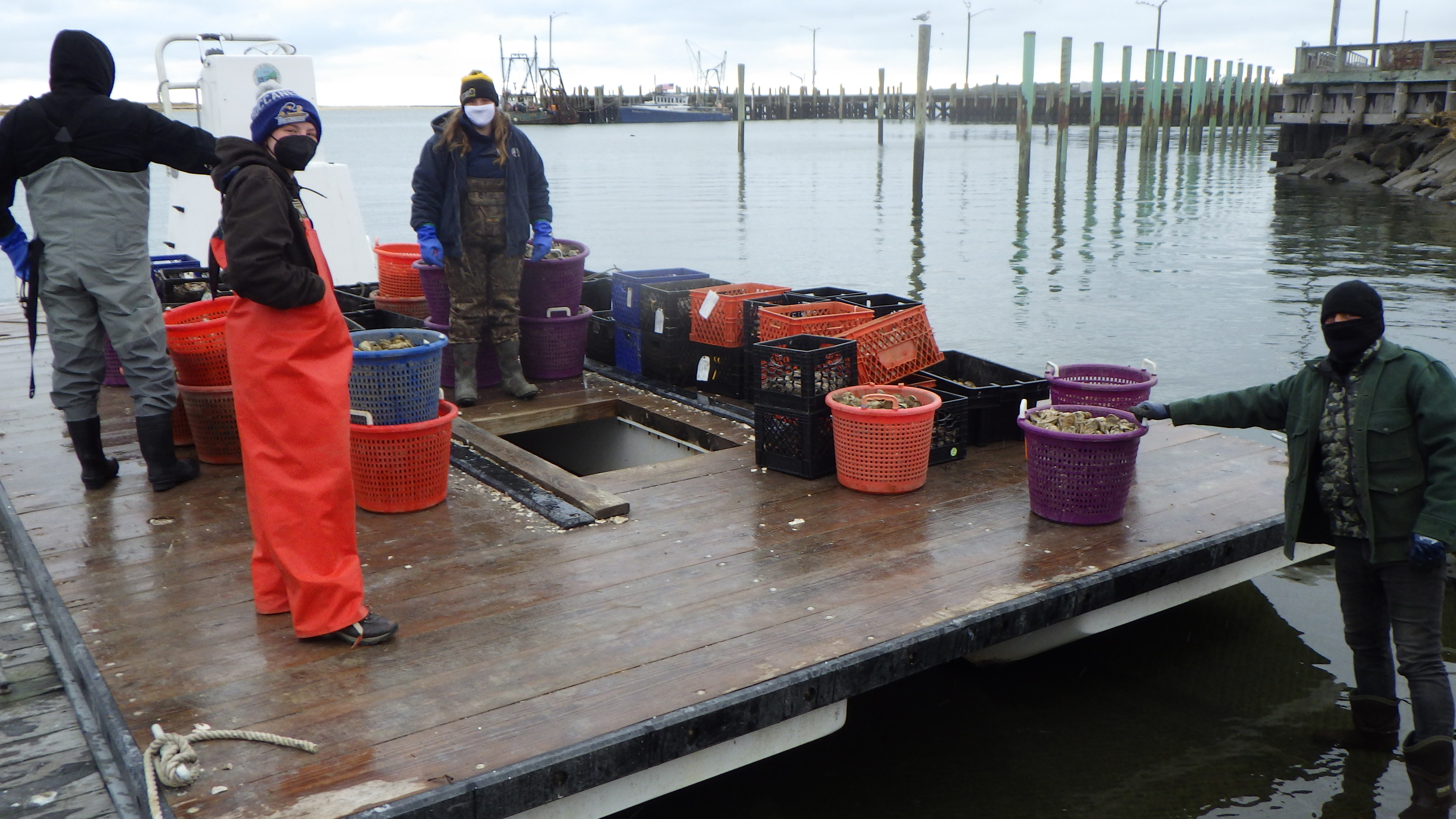
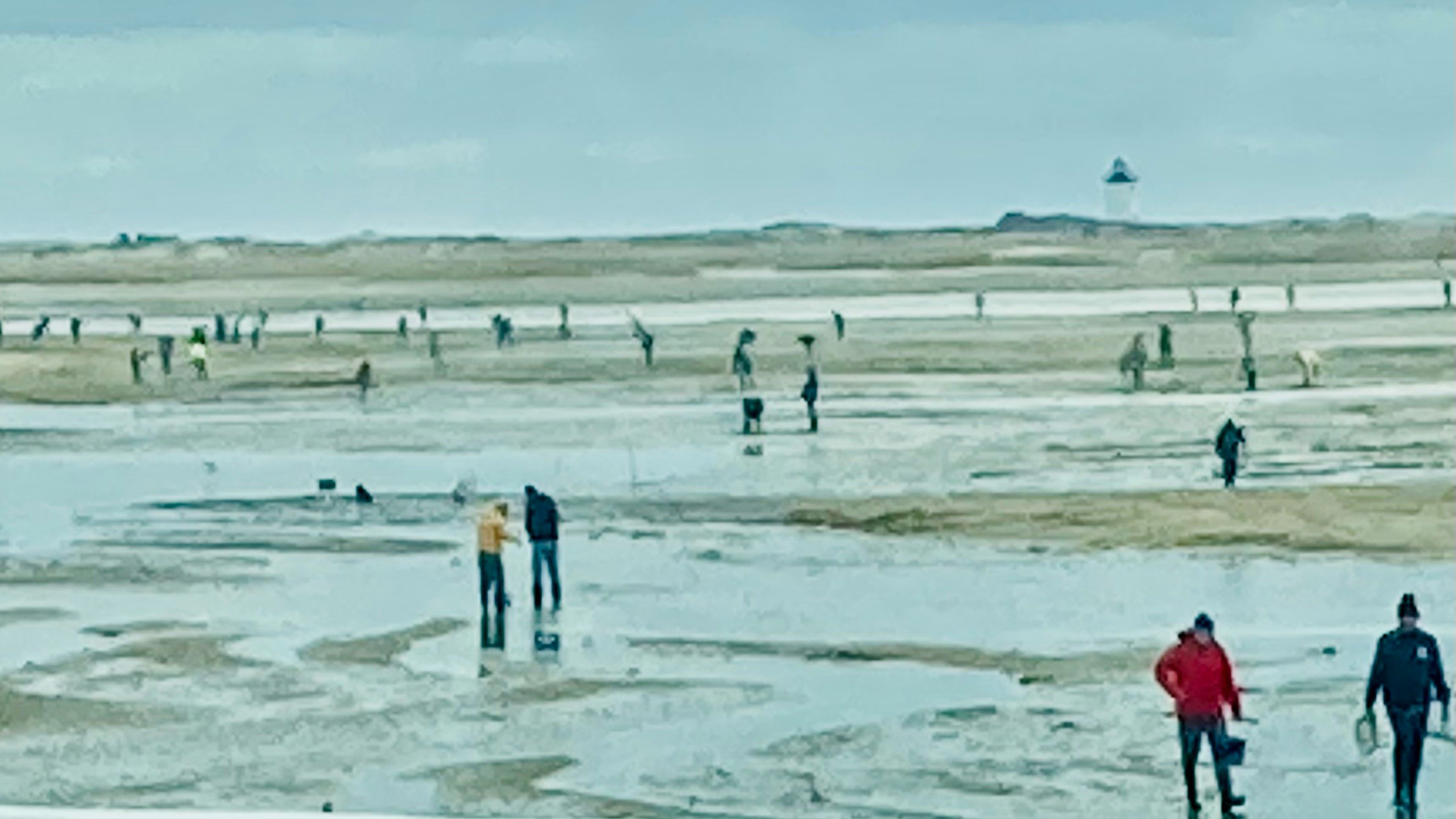
Brewster - The town worked with Brewster oyster growers to purchase oysters, which normally would have been sold to restaurants, and broadcast the oysters into the waters in advance of the annual Oyster Sunday events. The event allows residents with recreational fishing licenses the opportunity to gather oysters for Thanksgiving. This year, it also included a food drive for the Lower Cape Outreach Food Pantry and extended one week later than usual.
Chatham - The town hired local shellfishermen to assist in the dig out of one of the Town’s propagation grow out areas (Mill Creek), where 600,000 quahog clams are ready to be extracted. Shellfishermen will be paid for each bushel of seed quahogs harvested. The quahogs will be broadcast throughout the Town waters (at Stage Harbor) by the Shellfish Division staff. The work provides shellfishermen with some income while contributing to the future of their industry. The town will purchase a local grower's large overstock of oysters to rebuild and enhance the recreational-only oyster fishery.
Wellfleet - Recreational shellfishing pressure in Wellfleet has increased exponentially since the onset of COVID-19. The funding enhances shellfish resources for recreational harvesters and provides a modest monetary benefit to growers. There are 96 grant lease holders on ~84 farms in Wellfleet. With the grant funds, the Town will purchase more than 22,000 oysters that are 3 inches or more in size and distribute the oysters to the primary recreation-only shellfishing area at Indian Neck.
Provincetown - The Town will pay commercial growers to harvest and move oysters from a restricted area to an approved area that is in closed status. The Town also purchased ~5,000 oysters that are 3 inches or more in size from town growers and broadcast them in the Town’s recreational shellfish area.
Growers involved in town propagation project
Focus: Market research
The WHSG/CCCE team worked with three seafood retailers, Mass Department of Agricultural Resources, the MA Aquaculture Association, and Dr. Nora Barnes & Shannen Viveiros at Center Marketing to distribute 340 half-pints of shucked oysters to customers and request that they fill out a 16 question survey. The Final Report contains promising information for the development of value-added local shucked oyster products in Massachusetts.
Recipes
- Oyster Recipes from the Greater Boston Food Bank.
These are the first oyster recipes posted by the Greater Boston Food Bank on its Clink N Cook website! The site allows users to search for healthy nutritious recipes based on the ingredients they have on hand. The GBFB plays an important role in the WHSG/CCCE shucked oyster project, providing the high quality protein to people in need. But lots of people don't know how to cook oysters! The GBFB asked WHSG for help developing recipes that could be added to the site. Our colleagues at the Cape Cod Cooperative Extension Nutrition Program, Sue Bourque and Kim Concra, and local food writer Laurie Higgins developed six recipes using shucked oysters. Give them a try! - Six Shucked Oyster Recipes from Cape Cod Cooperative Extension (PDF)
Stories/Video
- Funding helps Wareham oyster growers supply seafood to people in need, Wareham Week, Jan. 24, 2021
- NOAA report reveals COVID-19 impact on fisheries, New Bedford Standard Times, Jan. 20, 2021
- Sea Grant funding helps Barnstable growers get seafood to families in need, Barnstable Patriot, Jan. 7, 2021
- Testing Out an Oyster Recipe - The Cape Codder, by Laurie Higgins, Dec. 5, 2020
- Grants Offer Needed Relief for Shellfish Harvesters - Cape Cod Times, by Denise Coffey, Nov. 29, 2020
- Is There a Market for Shucked Oysters? - Coastal Impacts WHSG newsletter, Aug. 2020
- Eat an Oyster, Support a Local Farmer - WHSG video, July 2020

